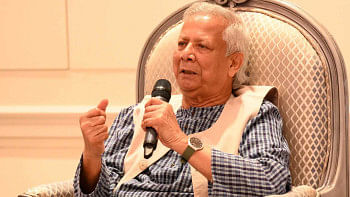Impeachment of Judges: A suggestion
THE Cabinet has approved the draft proposal to amend the Constitution and vest the power of impeachment of judges of the Supreme Court in the Parliament. The fundamental issue now is how the law should be framed so that it achieves its professed goal i.e. ensures accountability of the Supreme Court judges. This article will deal with one aspect that the proposed law on this issue may contain to reduce the scope for misuse.
Vesting the power in the Parliament in itself is not a bad thing and if crafted well, may function better than the current system of Supreme Judicial Council (SJC). A good outcome of the proposed amendment to the Constitution is that the process of impeachment would gain the much needed transparency. In the past, allegations against judges may have been investigated by the SJC, but the public has not been able to know what the recommendations of the council were. In today's world, when transparency is gaining more and more importance, it is unacceptable that such an important matter should escape public gaze and be swept under the carpet.
On the other hand, politically motivated criticism and skepticism aside, the critics of the proposed amendment have question marks about power the Parliament will exercise, mainly because they lack faith in the democratic culture of our political parties. History of the impeachment power (or more appropriately the veiled threat of its use) by the Parliament in Bangladesh would also make many apologists wonder about the smooth functioning of the proposed mechanism.
In not so distant a past, Mr. A.Q.M. Badruddzoa Chowdhury, a former President of Bangladesh, had to resign from his post because of the prospect of impeachment by the Parliament. There was no credible allegation of physical or mental incapacity or misconduct against him. Nonetheless, he had to resign because the then Prime Minster, Begum Khaleda Zia and her colleagues were not convinced about his loyalty to the party or was displeased with his perceived venture to create an image of being a personality who could go beyond petty party politics. There was widespread insinuation in newspaper reports at that time that by not visiting General Ziaur Rahman's grave on his death anniversary he infuriated the high ups in the ruling party and was accused of hurting the party's sentiment.
When the President of the Republic has to suffer such indignity on flimsy grounds, simply because he has lost favour of the party that appointed him, it is not certain that a judge of the Supreme Court would be immune to the wrath of the ruling party on fragile grounds. One can argue that after all Mr. Chowdhury was a politician and when he lost confidence of the political party that nominated him for the post there was none to defend him. A judge, being a non-partisan person, would be more difficult to dislodge in such a disgraceful way. That said he has no backers but his office and the power accompanying it, support of the bar, and public confidence. The judges are secluded from public and when a government with a two-third majority would proceed with the impeachment motion of a judge on not so cogent evidence, it is uncertain how much would public sentiment be able to protect him. Thus, the possibility of whimsical exercise of power remains.
It is well known that because of the provisions in Article 70 of the Constitution on voting in the Parliament, the MPs are barred from voting against party decisions. Many analysts have identified it as an obstacle to effective functioning of the Parliament and advocate its complete repeal. But it must not be forgotten that the practice of horse-trading of MPs is not unknown in Bangladesh. It is also quite common in this country that when a politician fails to secure the nomination of his political party, he /she swiftly joins another party. Hence, wholesale abolition of Article 70 is a complex issue and beyond the scope of this short article. Instead, the proposed Sixteenth Amendment to the Constitution may provide that in case of voting on an impeachment motion of a judge, the MPs would be allowed to caste conscience vote, that is, they can vote according to their conscience rather than on party lines. With the current state of hierarchical politics, the effectiveness of this mechanism is uncertain but this would give MPs a chance to respond to the calls of their conscience, not that of the leaders of their respective parties. This can also be a test case for further amendment or complete abolition of Article 70 in future.
Of course, the defenders of the proposed Amendment to the Constitution would argue that the power of impeachment of judges would be exercised by the Parliament very judiciously and on the basis of a credible accusation followed by a scrupulous inquiry (which would include giving the concerned judge an opportunity of presenting her/his arguments). After all, the parliament is accountable to the people and impeachment of a judge on unfounded accusations would not be accepted by the people, they would argue. Such accountability to the public should be an effective safeguard against any capricious exercise of the impeachment power by a government with an overwhelming majority in the house. Only time will tell if our democracy has matured enough to ensure this but precedents say otherwise.
The writer is an Assistant Professor of Law, BRAC University Bangladesh, <[email protected]>.

 For all latest news, follow The Daily Star's Google News channel.
For all latest news, follow The Daily Star's Google News channel. 



Comments